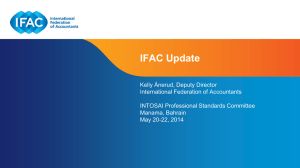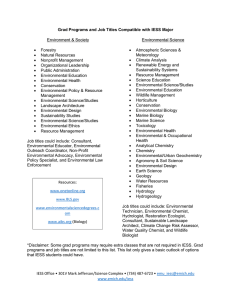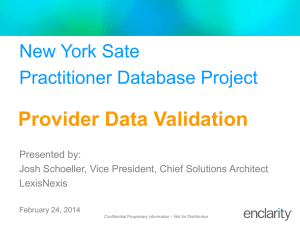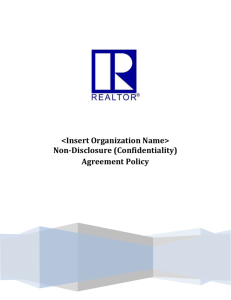UNCTAD-ISAR and IFRS Foundation Accounting Education Forum Capacity-building in corporate financial reporting:
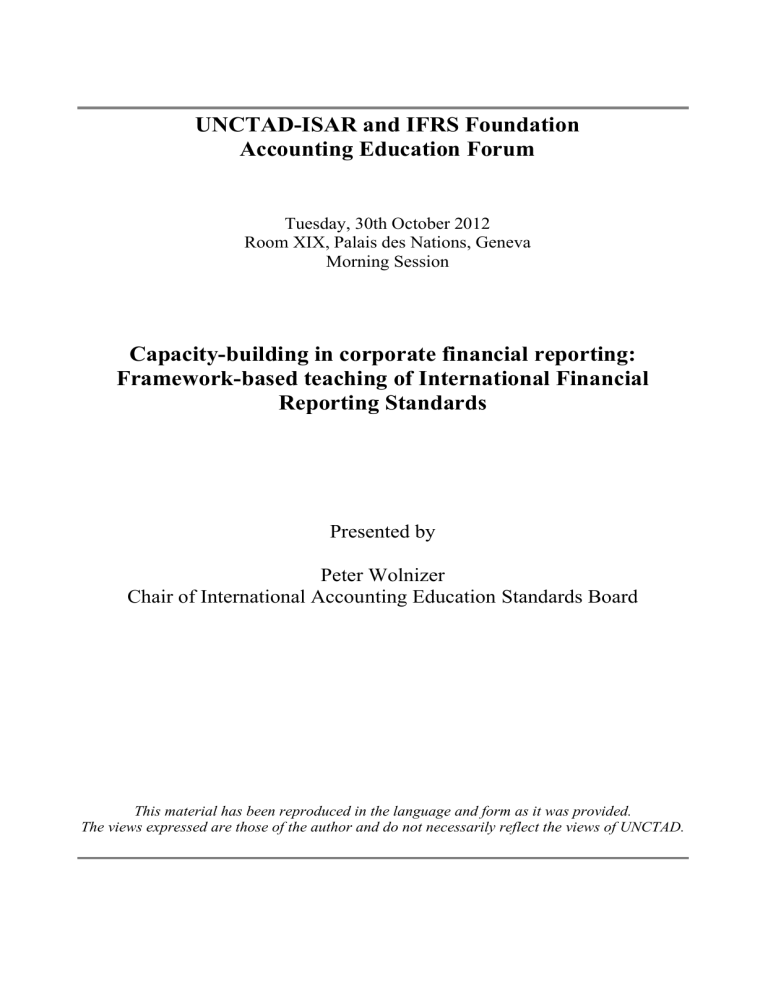
UNCTAD-ISAR and IFRS Foundation
Accounting Education Forum
Tuesday, 30th October 2012
Room XIX, Palais des Nations, Geneva
Morning Session
Capacity-building in corporate financial reporting:
Framework-based teaching of International Financial
Reporting Standards
Presented by
Peter Wolnizer
Chair of International Accounting Education Standards Board
This material has been reproduced in the language and form as it was provided.
The views expressed are those of the author and do not necessarily reflect the views of UNCTAD.
The Regulation of Professional
Accounting Education
Peter Wolnizer
IAESB Chair
Professor Emeritus, University of
Sydney
Page 1 | Confidential and Proprietary Information
What is the IAESB mission?
“ to serve the public interest by strengthening the worldwide accountancy profession through the development and enhancement of education.”
Page 2 | Confidential and Proprietary Information
How does the IAESB serves the public interest?
• By promulgating high quality standards and guidance statements that are designed to enhance the education, development and assessment of professional accountants
• By promoting the adoption and implementation of the International Education Standards (IESs)
• By developing education benchmarks for measuring the implementation of the IESs
• By advancing international debate on emerging issues relating to the education, development and assessment of professional accountants
Page 3 | Confidential and Proprietary Information
How Do We Operate?
A shared standard-setting process involving
• Volunteer members - including practicing accountants, academics, representatives from business, the forum of firms and the public
• Public Interest Oversight Board (PIOB) - oversight of
Board’s activities
• Consultative Advisory Group (CAG) – strategic and operational advice
• IFAC staff – facilitate structures and processes that support the operations of the IAESB
Page 4 | Confidential and Proprietary Information
What the International Education Standards (IESs) aim to do?
• Prescribe the professional knowledge, skills, values, ethics and attitudes required of professional accountants
• Act as benchmarks for professional accounting education
• Promote lifelong learning through continuous professional development and education.
Page 5 | Confidential and Proprietary Information
Aims of the International Education Standards (IESs)
• To reduce international differences in the requirements to qualify and work as a professional accountant
• To foster cross-border human capacity building in accountancy
• To facilitate global mobility of professional accountants
• To provide international benchmarks against which IFAC member bodies can measure themselves
Page 6 | Confidential and Proprietary Information
How the IAESB supports an integrated approach to accountancy development
IESs prescribe
• Entry Requirements
• Curriculum content
• Assessment
• Practical experience
• Continuing Professional Development
Page 7 | Confidential and Proprietary Information
How the IESs Influence the development of
Curriculum
IESs prescribe the content of curriculum:
• Technical Knowledge (IES 2)
• Professional Skills (IES 3)
• Professional Values, Ethics, & Attitudes (IES 4)
Page 8 | Confidential and Proprietary Information
Expected impacts of revised IESs - 1
• Enhanced quality of professional accounting education
• Enhanced learning outcomes that align with a competence-based approach to professional accounting education
• Enhanced understanding of the obligations and roles of key stakeholders in the education process
Page 9 | Confidential and Proprietary Information
Expected impacts of revised IESs - 1
• Enhanced quality of professional accounting education
• Enhanced learning outcomes that align with a competence-based approach to professional accounting education
• Enhanced understanding of the obligations and roles of key stakeholders in the education process
Page 10 | Confidential and Proprietary Information
Expected impacts of revised IESs - 2
• Enhanced consistency of educational practices
• Greater knowledge sharing among providers of professional accounting education
• Enhanced international benchmarking capability for providers of professional accounting education
Page 11 | Confidential and Proprietary Information
.
Sources of Information http://www.ifac.org/education
THANK YOU
Page 12 | Confidential and Proprietary Information

